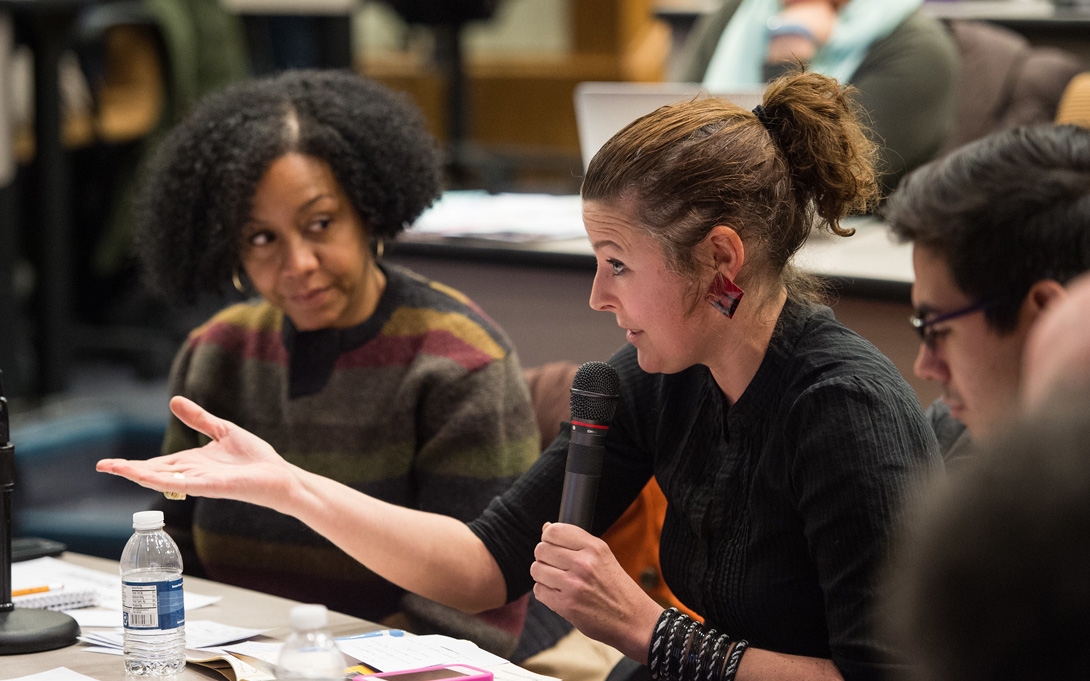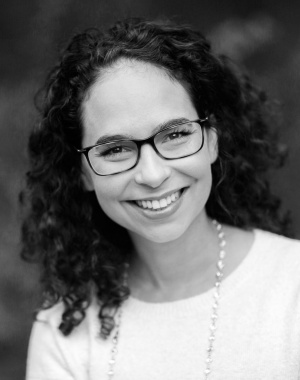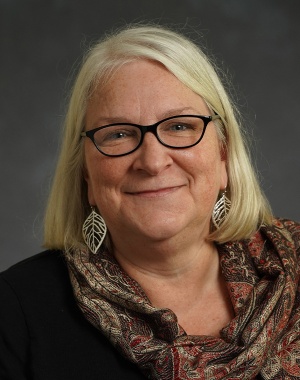
How do future policy leaders learn how to listen thoughtfully, process carefully, and respond empathetically?
For several years, the Ford School has hosted public events that bring together speakers who represent different, sometimes conflicting, perspectives and backgrounds. The event series, called Conversations Across Differences, has modeled for students and others what it looks like to speak and listen across intense, sometimes painful political and policy fault lines.
Productive discourse is particularly vital for a healthy democracy, says Morela Hernandez, faculty director of the Leadership Initiative and the Ligia Ramirez de Reynolds Collegiate Professor of Public Policy.
As a challenging election looms, Hernandez is leading a Ford School effort to expand Conversations Across Differences, building the concepts into the school’s curriculum.
Hernandez teaches the course “Leading Organizations” and is the faculty director of the school’s Leadership Initiative. In her classroom, she teaches graduate students concepts and skills needed to successfully navigate and shape dynamic policy environments. Students practice behaviors that will help them better connect across differences and enact change in complex, multi-layered contexts. New elective courses offered teach students how to facilitate conversations and resolve conflict. Leadership training also helps students understand how their leadership style may differ from others and appreciate and leverage those differences to facilitate better teamwork.
Hernandez believes that the ability to speak across ideological differences allows societies to overcome challenges and build resiliency.
“The less we’re able to talk to each other and work across our differences, the greater level of conflict there is within both personal and professional settings, and the less degree of progress we can make toward actually finding solutions for these very large challenges,” Hernandez said.
For students, Hernandez said, “How can we equip them so that all of the amazing quantitative and analytical skills they learn at the Ford School can be used in service of helping communities? How can our students become agents of positive change in society?”
Jennifer Niggemeier, managing director of the Leadership Initiative, and others around the school have been testing how to incorporate these concepts. For example, at graduate orientation and also in Stephanie Sanders’ undergraduate Applied Learning Seminar, students practice listening to understand—not simply to respond—with an activity from the Constructive Dialogue Institute. In an exercise called “The Complaints Game,” students were paired off and then had one minute to talk about something that angered or frustrated them—annoying drivers, an in-law, a policy issue.
Their partner’s role was to not speak or react for one minute. At the end of the minute, the partner had 30 seconds to reflect back what they had heard and what they understood about the first person’s frustration.
“A lot of the work we’re doing is around active listening, and holding space to listen for another’s values versus wanting to jump in right away and respond with our own perspectives,” Niggemeier said. An exercise like this can help people listen with the intent of holding the space for another person’s experiences and perspectives.
“We learn when conversations stretch us; we shut down when conversations move us into our panic mode, Niggemeier said. “Our goal is to equip students with tools to de-escalate the trigger reactions and panic reactions of a tense or polarized conversation and turn it into a more constructive dialogue.”
She added, “If we’re only looking through the lens of our own perspective, we’re missing the mark. We need to listen for why someone believes the way they do vs. making assumptions from our own experiences and biases.”
Hernandez and Niggemeier are leading a faculty task force this year that will recommend how to further implement Conversations Across Differences within the Ford School curriculum.
By Alison Bowen

